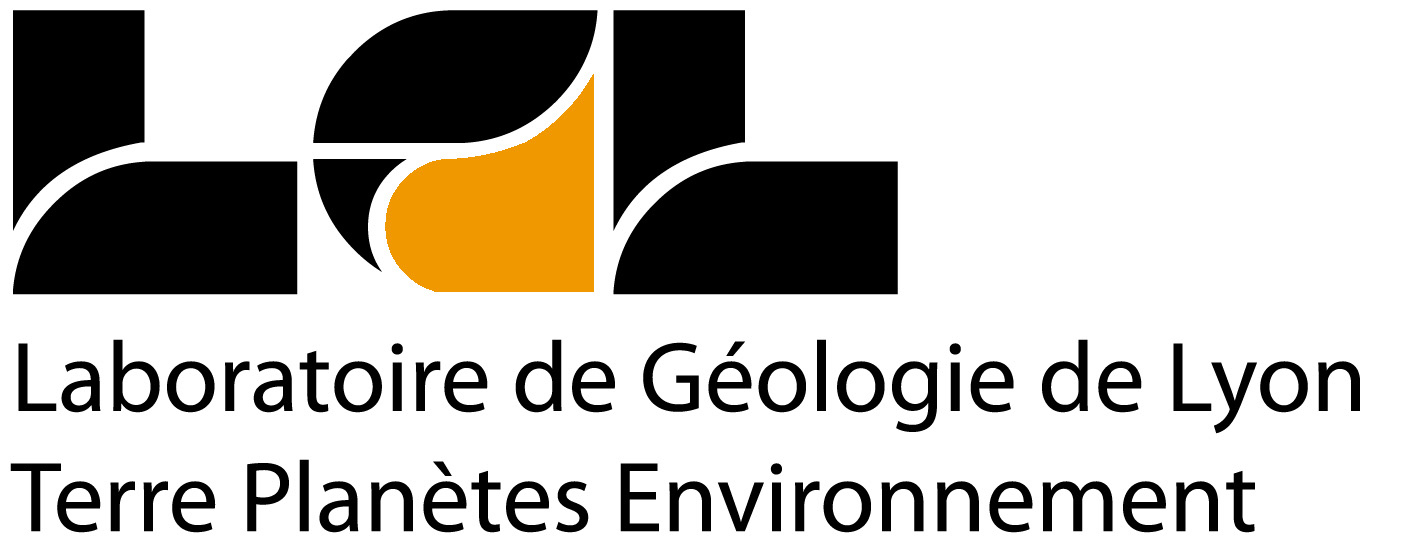Offres de Stages, Thèses, ...
Offres de Stage (L3-M2)
Mantle seismic imaging from the scattered wavefield (M2)
Voir sur le site du
Département des Sciences de la Terre.
Lieu : LGL-TPE, Lyon, France, and punctually at IPGP, Paris, France.
Contact : B. Tauzin, benoit.tauzin[at]univ-lyon1.fr, +33 (0)4 72 43 26 59
N. Fuji, nobuaki[at]ipgp.fr, +33 (0)4 72 43 26 59
Short-period seismic scattering data can provide detailed information on the deep Earth, especially
on upper mantle seismic boundaries. In general, we back-propagate waveforms observed on seismograms
in reference Earth's velocity models so that we can detect seismic discontinuities (e.g. the
Receiver function method; Tauzin et al., 2013). The approach does not provide information on the``true''
elastic parameters but rather on the scattering intensity and wave reverberations that are not taken
into account produce artifacts in seismic images.
A promising approach is the use of 3D inverse scattering (e.g., Rondenay et al., 2009). The use
of a finite frequency approach under the Born approximation (Fuji et al., 2012) makes possible to model
any portion of the seismogram by perturbing in 3D the elastic parameters from 1D reference models (i.e.
computing synthetic seismograms) and the inversion of waveforms for elastic parameters. The method may
reveal promising in imaging with a high resolution the fine mantle structure in specific areas where the
coverage in station is dense (e.g., below western US; Tauzin et al., 2013).
The objective of this internship is first to apply the conventional imaging method of Tauzin et al. (2013)
on a subsample of the USArray data. Then, the method developed by Fuji et al. (2012) will be tested on this
dataset. It should indicate to what extent 1D seismic reference models can explain observed waveforms on
receiver functions and if perturbing in 3D the elastic parameters significantly improves the fit to the
data. This imaging should provide ultimately valuable constraints on the mantle structure including phase
transitions at a continental scale.
Required knowledge and skills:
Advanced Seismology, Inverse Methods, Signal Processing, Numerical Methods, Scientific Computing.
Références :
- Fuji N., Chevrot S., Zhao L., Gellert R.J. and Kawai, K. (2012); Finite-frequency structural sensitivities
of short- period compressional body waves, Geophys. J. Int., 190, 522-540.
- Rondenay, S. (2009); Upper mantle imaging with array recordings of converted and scattered teleseismic waves,
Surv. Geophys., 30, 377-405.
- Tauzin, B., R. D. van der Hilst, G. Wittlinger, Y. Ricard, (2013); Multiple seismic discontinuities and
low-velocity layers below western US, J. Geophys. Res. 118, 1-16.
Seismological observation of meteorites (M1)
Place: LGL-TPE, Lyon, France
Contact: B. Tauzin, benoit.tauzin[at]univ-lyon1.fr, +33 (0)4 72 43 26 59
Collaborations with: E. Debayle, Senior Scientist at LGL-TPE,
and C. Quantin, Associate Professor at LGL-TPE.
Contrary to common expectations, the impact of a meteorite at the ground do not provide seismological
observations of meteoritic events on Earth (Edwards, 2008). A bolide or a fireball propagating at
hypersonic velocities and/or disintegrating in the atmosphere induces an acoustic shock wave that,
under particular conditions (Edwards, 2007), couples directly with the ground. Seismic stations
thus record this ground-coupled air wave, as well as induced seismic waves by resonance phenomenon
within the uppermost layers of the crust (Ewing, 1957).
In a recent work (Tauzin et al., 2013), we demonstrate that the shock wave induced by the breakup
of the 15 Feb 2013 Chelyabink meteorite in Russia generated seismic surface waves recorded as precursors
of the ground-coupled air wave at stations as far as 4000 km away from the source region. The ground-coupled
air wave is also visible at a few stations.
The aim of this internship is to make a quantitative study of the air wave (frequency content,
shape, timing) by comparing records at seismological and infrasound stations all over the world.
This observational work will be accompanied by an analytical and numerical modeling of the
seismo-acoustic coupling.
Required knowledge and skills:
Basic Seismology, Signal Processing, Scientific computing.
Références :
- Edwards, W., D. Eaon, and P. Brown (2008), Seismic observations of meteors: coupling theory
and observations, Rev. Geoph., 46, 1–21.
- Edwards, W., D. Eaon, and P. Brown (2007), Calibrating infrasonic to seismic coupling using
the Stardust sample return capsule shockwave: Implications for seismic observations of meteors,
J. Geoph., Res. 112, 1–13.
- Ewing, W., W. Jardetzky, and F. Press (1957), Elastic waves in layered media, McGraw-Hill.
- Tauzin, B., E. Debayle, C. Quantin, N. Coltice, Seismo-acoustic coupling induced by the breakup
of the 15 Feb 2013 Chelyabinsk Meteor, in press.
Other internship positions (L3-M1)
here
Offres de thèses
Document Actions





